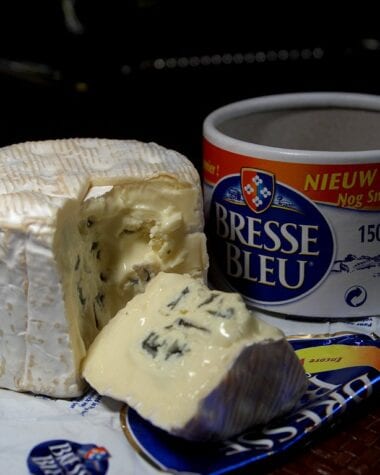Hearing something negative thrown against processed foods has seemingly become a customary thing nowadays. They have been blamed for several adverse things, such as the national rise in obesity, increased high blood pressure, and the skyrocketing rate of diabetes.
Unfortunately for the frozen food industry, their products have been clumped on processed foods. Whether by accident or not, many now believe that the two are one of the same. This pushed back the progress of frozen foods toward its ultimate goal of being an equal alternative to fresh foods in terms of taste and health benefits.
This got us thinking. Is frozen food considered processed food? What exactly is the definition of processed foods? If otherwise, how do frozen foods differ from processed ones? Let us try and answer all that below.
What is Processed Food?
Processed foods can be categorized into several types. It encompasses a wide array of food products; almost everything that isn’t fresh produce can be considered processed. This includes food that has been cooked, canned, packaged, changed in nutritional composition through fortifying, preserving, prepared through various means, and, yes, freezing.
According to the US Department of Agriculture themselves, any time we alter food by any means, it can already be considered processed food. This may include adding flavors, nutrients, preservatives, and other substances or additives commonly used in food products, such as fats, sugars, and salt.
Processed food falls on a spectrum from minimally to heavily processed, as per the Academy of Nutrition and Dietetics:
- Minimally Processed Foods – examples are cut vegetables, roasted nuts, and bagged spinach. These foods are simply pre-prepped for consumer convenience. They aren’t altered all that much.
- Foods processed at their peak state to ensure its freshness and that the nutrients it has remains in excellent quality. Includes tomatoes, vegetables, canned goods, and frozen fruits.
- Foods with ingredients added for extra flavor and texture, such as spices, colors, sweeteners, and preservatives. Examples are jarred salad dressing, yogurt, pasta sauce, and cake mixes.
- Ready-to-eat Foods – examples are granola, crackers, and deli meat. These foods are heavily processed to ensure consumers can eat them whenever they wish so.
- Most Heavily Processed Foods – examples are pre-made meals, including frozen pizza and microwaveable dinners. This is where frozen meals can be found. Can be consumed after a few minutes in the microwave or oven.
Frozen Foods are Processed Foods
And with that, it couldn’t be more clear. Frozen foods are indeed processed foods. That being said, frozen foods have come a long way. Gone are the iconic TV dinners of the 1950s that were heavily processed, bland, and top-loaded with calories.
Today’s frozen varieties offer tasty, well-rounded entrees that aren’t just easy to prepare but are also brimming with health benefits. In fact, dietitians themselves now have several recommendations for frozen meals that would be good for your health or ongoing diet plan.
While it is true that some frozen foods still serve no other purpose than filling up your stomach and being there as an easy option for a busy day, they are now much fewer than those that do just that while still giving you the proper nourishment to keep in tip-top shape.
With all that being said, let us debunk some common falsehoods thrown against frozen foods.
Frozen Food Myths
Frozen foods are overflowing with chemicals
There is no denying that frozen foods are indeed processed, and some have more chemicals or artificial ingredients in them than your typical processed food. However, generally speaking, fewer preservatives are needed for frozen foods because freezing naturally preserves them. While this myth certainly has something to go for, it just does not feel right to generalize all frozen foods as pumped with chemicals as only a few of them actually are.
Frozen foods lose their nutritional value in the freezing process
Say that nothing goes wrong in the freezing process; nutritional content in foods is often preserved through freezing, especially when it comes to vegetables and fruits. Several studies have already proved that frozen veggies and fruits can even have higher nutrient values, such as vitamins A and C, compared to their fresh variants. This is because vitamins and minerals in fresh foods can break down over time, whereas freezing keeps them in check.
Frozen foods are fattening
As with many foods, there are healthy and not-so-healthy options. It is worth noting that the right frozen foods can actually help with weight management and loss. As we already mentioned above, some are even recommended by dietitians themselves.
Furthermore, they are already pre-cooked, pre-cut, and ready to use – making it much easier to skip the drive-through. They can also make excellent choices when working on portion control as they are prepped as single savings already.
Positives of Processed Foods
Looking past processed foods’ negative effects, they also have certain positives that make them worthwhile purchases. Processed foods can help you eat more nutrient-dense foods.
For instance, ‘processed’ milk and juices sometimes are fortified with vitamin D and calcium, while breakfast cereals may have added fiber. Canned fruits can be an appealing alternative when fresh fruits aren’t available.
Furthermore, minimally processed foods, such as pre-cut vegetables and pre-washed, bagged spinach, are convenient and quality convenience foods that are ideal for busy people.
Today, it just seems impossible not to go for processed foods. While it is true that it can be bad for you, especially when haphazardly taking them almost every day, some can be good for you under certain circumstances. Just make sure that you first review the product’s nutritional value and used ingredients.
Related Article: Frozen Foods: Major Pros and Cons
Make it a point to read the product’s label
It is imperative to do some investigative work by examining the ingredient list and analyzing the Nutrition Facts label on every product that you purchase, especially so with processed foods. Note that just because a product has a label of ‘natural’ or ‘organic’ on its front, it doesn’t necessarily mean it is true and consuming it is better for you.
The bottom line is, eating processed foods on occasion is fine. However, keep an eye out for hidden sugar, salt, and fat, especially those added during processing. Thankfully, most Nutrition Facts labels now include added sugars, making it easier to discern which products to go for. Studies suggest that getting less than 10% of total calories from added sugars is the way to go.
As for sodium, people often comment that they don’t put salt in their food. The truth is, you don’t really have to because manufacturers have added salt to their products themselves already. Unfortunately, more often than not, they add too much of it. To reduce the sodium content of canned vegetables or fruits, we recommend rinsing them first with water.
Conclusion
Yes, frozen foods are processed foods. By default, they share the same positives and, unfortunately, also bear the same disadvantages. That being said, it is worth noting that frozen foods are trending toward healthier options. The industry is trying to cement itself as an equal to fresh foods. To do that, it must continue to distance itself away from the stigma currently plaguing processed foods. And to their credit, they are doing just that.
For everything frozen foods and more, visit our website today at dadongny.com.










